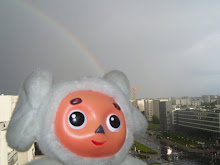Now, if you don't believe me, just ride the subway. At Stacja Ratusz Arsenał, listen to the announcement, which pronounces it like ArsenaL. I presume that the name is preserved for historical reasons.
How to Piss off the English
Now, an American like myself has run into quite a bit of resistance to forcing people to adopt the American way of saying things. (I've had enough of lorry and pronouncing schedule like shed-yoo-all.) Why not rattle their chains a little?So, a few years back a Polish girl was pontificating about how British English was superior to American English because it sounded more royal, affluent, and historical. It was the dialect of Shakespeare, of the Queen, of Hugh Grant. Except… it wasn't. I pointed out firstly that there are many dialects and accents of British English and the best dialect outside of the US was the Irish Brogue followed by the Scottish Brogue.
More importantly, today's British English is NOT the language of Shakespeare (or so say the linguists.) We have become accustomed to actors in movies speaking with modern British accents and actors on stages fudging with terrible British accents. But did Shakespeare really speak with a modern British accent? Probably not. He probably spoke with an accent closer to the Carolinian accent (much like Stephen Colbert used to.) The Carolinas (North and South) were colonized about 400 years ago and were buffered from many linguistic influences unlike, say New York or Boston or even Minnesota. So, to be more historically accurate, those actors should try to emulate Lindsay Graham's way of speech Hugh Grant's.
Also, the English learned how to write from the Irish (ooooh, doesn't that just make their blood boil?!)
























